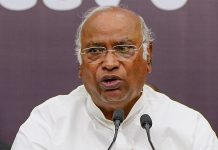Speedy retrieval of the black money stashed away in overseas tax havens is a distant possibility, says Abhishek Anand

THE GOVERNMENT is making a second attempt to recover the billions of dollars that Indians have stashed away in overseas bank accounts. Recently, the Enforcement Directorate (ED) issued 200 notices to alleged tax evaders, and asked them all to show their income-tax returns for the past five years within a month. Nearly $1.5 trillion is believed to be lying in these banks.
But these are early days yet, and finance ministry officials say it is impossible to say how long it will take to retrieve the concealed money — if any of it comes back at all. It certainly won’t happen in a hurry, most of them agree; though according to Finance Secretary Ashok Chawla it will now become a great deal harder to launder money
Also in the pipeline are eight more Income Tax Overseas Units (ITOUs) — in the US, the UK, the Netherlands, Japan, Cyprus, Germany, France and the UAE to keep a better tab on illegal transactions. Currently there are only two: one in Singapore and another in Mauritius.
The ED crackdown has come a month after the Central Board of Direct Taxes sent show-cause notices to 50 people whose names were disclosed by LGT Bank in Liechtenstein — a tax haven close to Germany.
It was the amendment of Section 90 of the Income Tax Act earlier this year that enabled India to sign informaIt was the amendment of Section 90 of the Income Tax Act earlier this year that enabled India to sign information- sharing agreements with nine autonomous territories — all cushy parking lots for illegal money. Bermuda Islands, British Virgin Islands, Cayman Islands, Gibraltar, Guernsey, Isle of Man, Jersey, the Netherlands, Antilles and Macau have been more than just holiday destinations for affluent Indians.
Negotiations are currently on with 64 more countries, says a senior finance ministry official. The information exchange agreement with Switzerland — a political hot potato — could also materialise soon. Sources in the ministry say the move followed recent demands by influential lobbyist Economiesuisse, which asked the Swiss government to disclose the names of the tax evaders.
Laundering of money will now become a great deal tougher
Last year, Switzerland agreed to renegotiate a host of tax treaties with other nations while brokering a deal with Washington to hand over confidential data of UBS clients. But the trillion-dollar question is whether the measures that have been taken so far are good enough. KR Girish, partner, direct taxes at KPMG — a major think tank — is sceptical, saying: “At the moment it is premature to say whether tax collections will be augmented and money laundering mitigated. But yes, the measures could greatly help in tracking the actual source of foreign direct investment and the entities behind it.”
Jagdish Shettigar, Convenor of BJP’s Economic Cell, however, doubts that the initiative will yield results. “The best remedy is to block the creation of black money. Lowering of property tax, income tax, and public funding of elections would substantially reduce the creation of black money in the first place,” Shettigar argues. Brave words — but who will turn the words into deed?
Writer’s Email: abhishek.anand@fwtehelka.com












